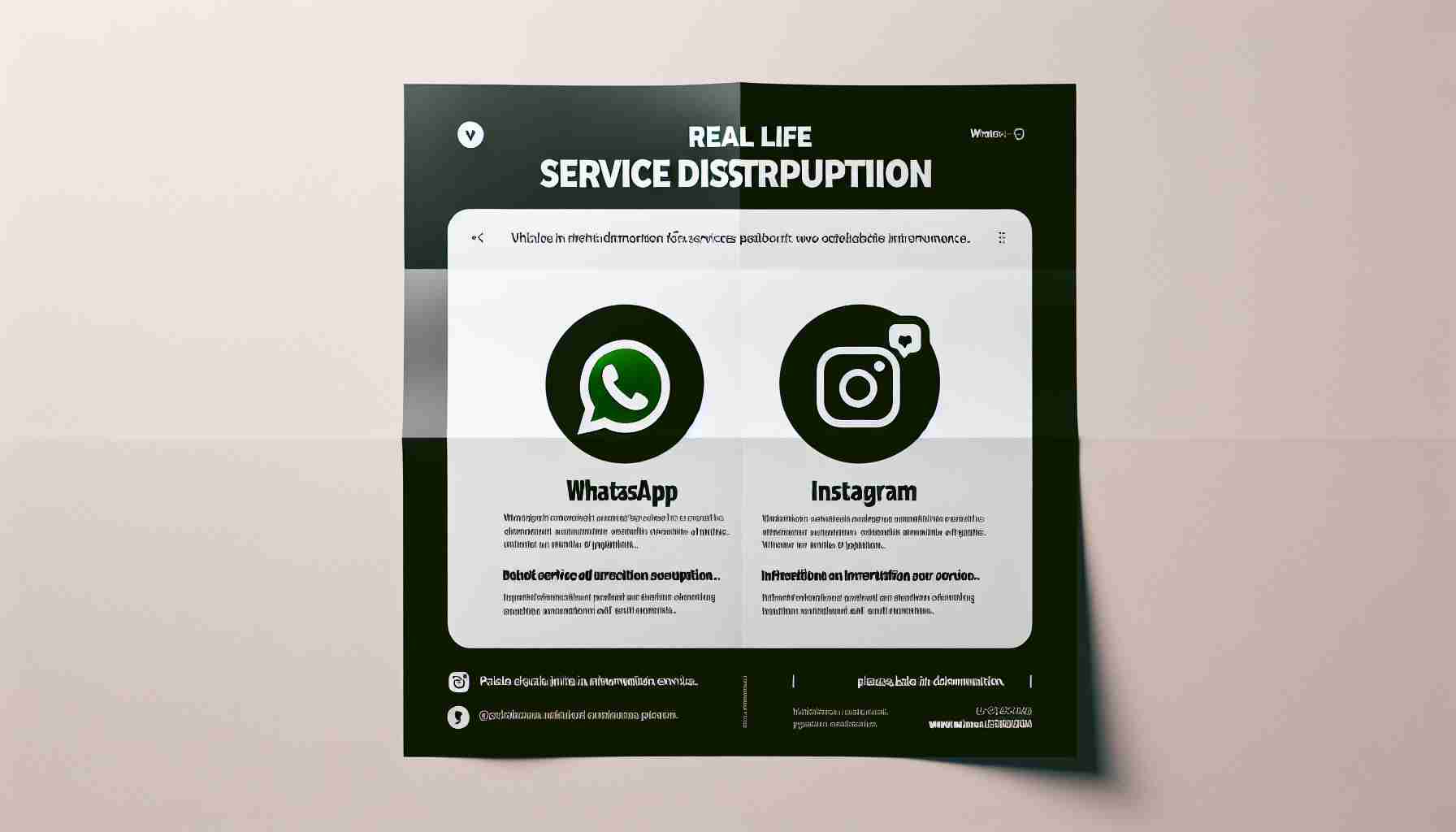The popular messaging application, WhatsApp, and its sister platform, Instagram, experienced service disruptions that affected users worldwide on Wednesday evening. Reports and testimonies on social media indicated that users were unable to send or receive messages through WhatsApp during this time. Similar issues were also reported on Instagram, causing concerns among users.
No official statement was released by WhatsApp or its parent company, Meta, regarding the cause of the malfunction. However, users noticed a gradual return to normal activity as WhatsApp began functioning again later in the evening.
While the disruptions in WhatsApp’s service subsided, users still faced difficulties with Instagram. According to Dr. Itay Gal from Maariv, global disruptions were still being registered on the platform even after WhatsApp’s recovery. Users both in Israel and worldwide encountered problems with uploading content to Instagram.
The impact of these service disruptions is significant as WhatsApp and Instagram have become essential communication tools for millions of users globally. The inability to use these platforms even for a short period can disrupt personal and professional communication.
It remains unclear what caused the disruptions and if they were related to technical issues or external factors. Users will be eagerly awaiting updates from WhatsApp and Meta to understand the cause and prevent future incidents.
As this is a developing story, more information is expected to emerge in the coming hours or days. Users are advised to stay updated and monitor official announcements from WhatsApp and Meta regarding the service disruptions.
The service disruptions experienced by WhatsApp and Instagram highlight the importance of these messaging platforms in the lives of millions of users worldwide. WhatsApp, in particular, has become a primary means of communication for both personal and professional purposes, with over 2 billion monthly active users.
The incident raises questions about the reliability and stability of these platforms, as well as the potential impact on individuals and businesses that heavily rely on them. Organizations that use these platforms for customer support or marketing may have been affected by the disruptions, leading to delays in communication and potential loss of business.
In terms of the industry, the messaging app market has seen tremendous growth in recent years, driven by the increasing use of smartphones and the need for instant communication. Alongside WhatsApp and Instagram, other popular messaging apps include Facebook Messenger, WeChat, and Telegram, among others.
According to market forecasts, the global messaging app market is expected to continue its upward trajectory. A report by Grand View Research predicts that the market will reach a value of $125.9 billion by 2027, growing at a compound annual growth rate (CAGR) of 7.8% from 2020 to 2027. The increasing demand for instant messaging and the integration of additional features like voice and video calling contribute to this growth.
However, the industry also faces challenges and issues related to privacy and security. Messaging apps store vast amounts of personal data, which can be vulnerable to breaches and unauthorized access. Users are becoming more aware of the importance of data protection and are increasingly opting for apps that prioritize privacy and encryption.
To address these concerns, messaging app developers are continuously working on improving security measures and implementing end-to-end encryption to safeguard user data. WhatsApp, for example, offers end-to-end encryption, ensuring that messages can only be read by the sender and recipient.
In conclusion, while the recent service disruptions experienced by WhatsApp and Instagram have caused inconvenience for millions of users, these incidents highlight the dependence of individuals and businesses on these messaging platforms. Industry forecasts indicate continued growth in the messaging app market, but challenges related to security and privacy remain. Users and organizations must stay updated on official announcements and developments to mitigate disruptions and protect their communication channels.
